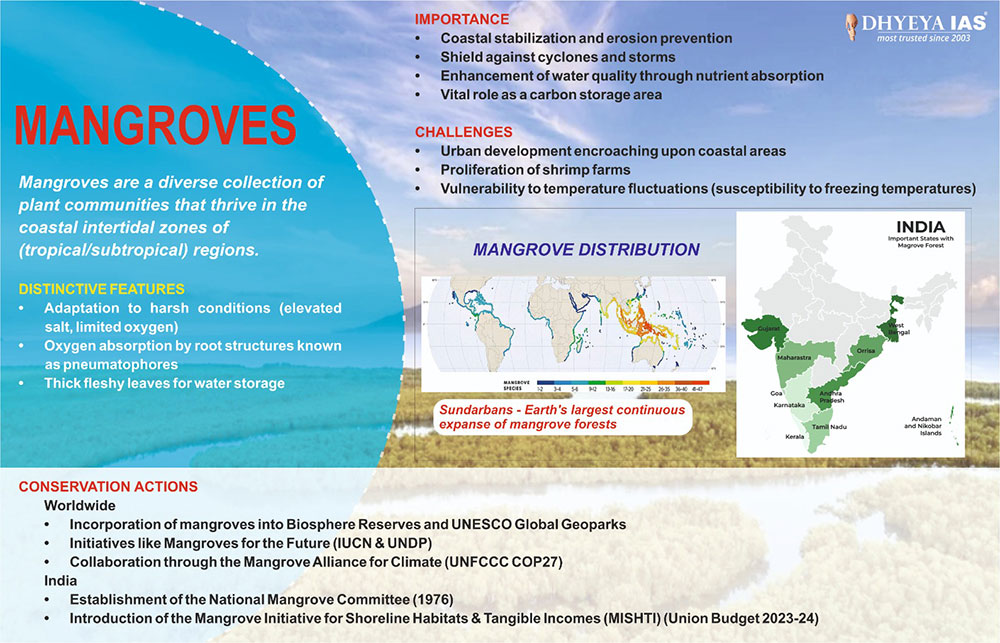
Mangroves are a diverse collection of plant communities that thrive in the coastal intertidal zones of (tropical/subtropical) regions.
DISTINCTIVE FEATURES
- Adaptation to harsh conditions (elevated salt, limited oxygen)
- Oxygen absorption by root structures known as pneumatophores
- Thick fleshy leaves for water storage
MANGROVE DISTRIBUTION
- Sundarbans - Earth's largest continuous expanse of mangrove forests
IMPORTANCE
- Coastal stabilization and erosion prevention
- Shield against cyclones and storms
- Enhancement of water quality through nutrient absorption
- Vital role as a carbon storage area
CHALLENGES
- Urban development encroaching upon coastal areas
- Proliferation of shrimp farms
- Vulnerability to temperature fluctuations (susceptibility to freezing temperatures)
CONSERVATION ACTIONS
Worldwide
- Incorporation of mangroves into Biosphere Reserves and UNESCO Global Geoparks
- Initiatives like Mangroves for the Future (IUCN & UNDP)
- Collaboration through the Mangrove Alliance for Climate (UNFCCC COP27)
India
- Establishment of the National Mangrove Committee (1976)
- Introduction of the Mangrove Initiative for Shoreline Habitats & Tangible Incomes (MISHTI) (Union Budget 2023-24)
